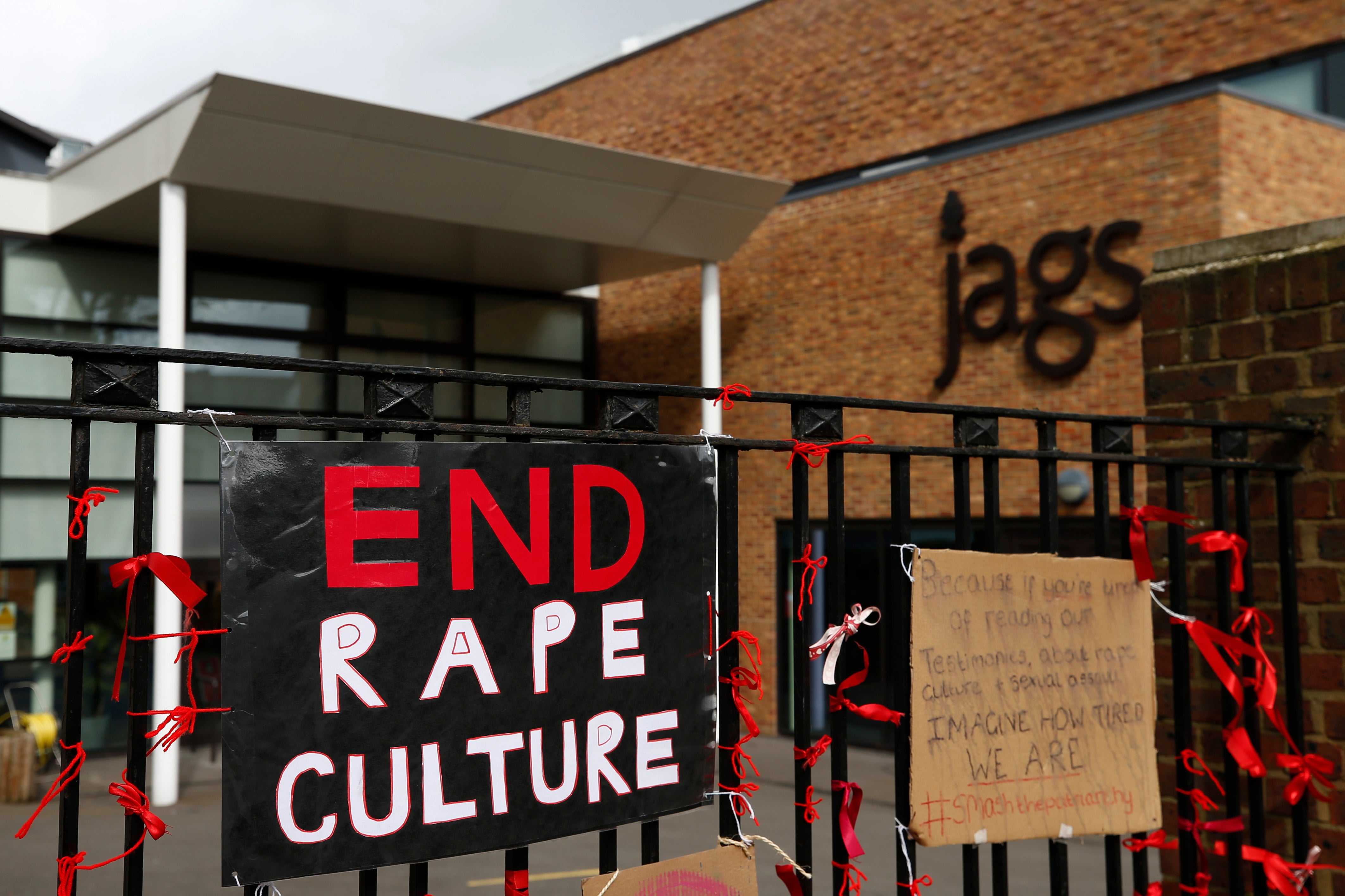The government should have taken action on rape culture in British schools years ago
In 2016, the Commons Women and Equalities Committee published a report which it said painted a ‘concerning picture’ of sexual harassment and abuse of girls – did the government miss the memo?


The head of the schools watchdog, Ofsted, is “deeply troubled”. The education secretary found the allegations of sexual violence in schools “shocking and abhorrent”. One of the unions said it was all “deeply concerning”.
While the expressions of outrage are fully justified, I wonder where the people uttering them have been for the last few years. And why Ofsted’s urgent investigation of the issue, announced yesterday, is so belated.
Let me take you on a tour of the evidence to date.
In 2016, the Commons Women and Equalities Committee published a report which it said painted a “concerning picture” of sexual harassment and abuse of girls “being accepted as part of daily life”. It included data showing that 5,500 sexual offences were recorded in UK schools over a three-year period, including 600 rapes.
“Too many schools are failing their pupils in this area,” it concluded, and warned that “the government has no coherent plan to ensure schools tackle the causes or consequences of sexual harassment and sexual violence”. It was troubling, shocking and deeply concerning. It was, in short, the perfect call to action. But did the government miss the memo?
Read more:
- Accidents seem to have an alarming propensity to happen to David Cameron
- Why Matt Gaetz joining Newsmax is a bigger problem than you think
- Opinion: It’s right to get rid of ‘Bame’ – but this report minimises racism in the process
- Opinion: If you stop eating fish in order to save the environment, you are missing the point
A year later came the MeToo movement, and a timely report from the National Education Union, It’s Just Everywhere, setting out the scale of the problem. Indeed, you could have asked any woman of any age about so-called “peer-on-peer abuse”, and many will have their own story.
In 2018, I was asked by The Sunday Times about my school days as part of the Back2School anti-bullying campaign launched by the Diana Award, a charity I support. In the post-MeToo spirit of encouraging young women to call out harassment and abuse, I disclosed that when I was 16 a boy at school unzipped his flies and forced me to touch his penis. I didn’t report it to the school, I didn’t tell my parents. I just felt humiliated and embarrassed.
After I spoke out, all those years later, the school called the allegations “deeply shocking”, insisted “such behaviour has no place in any school”, and called in the police. Countless women of all ages got in touch to say how my story had resonated.
And then, just over a year ago, I reported for Channel 4 News on the sheer number of children raped and abused at school – and disturbing failings in safeguarding.
All of this before Everyone’s Invited and the thousands of distressing stories that have so shocked the educational establishment, and prompted yesterday’s Ofsted investigation and the launch of an NSPCC helpline.
One mother of a girl who was raped by a boy at her school contacted me to say how angry and frustrated she was that years of campaigning by her and other parents had, in her view, yielded so little.
After the 2016 select committee report, guidance was introduced which was supposed to improve the situation. But successive education secretaries have been warned that the guidelines simply aren’t clear enough, and – crucially – teachers haven’t been given sufficient training to implement them.
The mother who got in touch told me: “Schools don’t have a clue... The guidance doesn’t explain that victims are entitled to be protected from alleged perpetrators even if there is no criminal prosecution, if the school believes that on the balance of probabilities there has been an assault... So what happens is that kids are still being put back in class with the boys who assault and rape them.”
After the boy her daughter accused of rape was arrested, the school allowed him to return the very next day, and put the pair of them in the same classroom.
Campaigners say that the government’s failure to address such concerns has led to a chaotic and combustible situation. Victims have effectively taken matters into their own hands, naming alleged perpetrators and schools. Headteachers are scrambling to pick up the pieces: delivering hasty assemblies on sex and consent, fearful of the consequences of a generation of boys being tried not by the criminal justice system mistrusted by so many girls – but by the court of social media instead.
And those who have long expressed concerns about what’s been going on lack confidence that both the government and Ofsted grasp the scale of the challenge.
The former children’s commissioner for England Anne Longfield tells me: “The testimonies we have heard from girls over the last week are a sign that things have gone very wrong in the culture and attitudes towards girls in some schools. The helpline is welcome as is the review of safeguarding. But this will take more.”
More than words. Shocking, troubling, concerning. It’s all of that, but it always was. Now is the time to channel the shock and concern into action.
Cathy Newman presents Channel 4 News, weekdays, at 7pm

Join our commenting forum
Join thought-provoking conversations, follow other Independent readers and see their replies